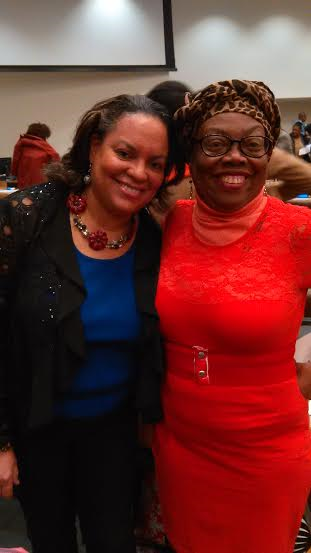Members
of the British Corps of Colonial Marines who supported the British forces during the War of 1812 and after the war ended, with their families, established Trinidad’s "Company Villages" as the “Meriken”
communities in Moruga.
Murphy Browne © April 18-2019
A
Proclamation
Whereas it has been represented to me that
many persons now resident in the United States have expressed a desire to
withdraw therefrom with a view to entering into His Majesty's service, or of
being received as free settlers into some of His Majesty's colonies.
This is therefore to give notice that all
persons who may be disposed to migrate from the United States, will with their
families, be received on board of His Majesty's ships or vessels of War, or at
the military posts that may be established upon or near the coast of the United
States, when they will have their choice of either entering into His Majesty's
sea or land forces, or of being sent as free settlers to the British
possessions in North America or the West Indies where they will meet with due
encouragement.
Given under my hand at Bermuda this
second day of April, 1814, by command of Vice Admiral.
Alexander Cochrane
In
April 2014, the British Vice Admiral released the carefully worded proclamation
encouraging enslaved Africans in the USA to seek their freedom by “entering
into His Majesty's service.” It was at the height of the “War of 1812,” a conflict
between Great Britain and the United States which took place between 1812 and
1815. The enslaved Africans seized the opportunity for freedom “by any means necessary”
and from areas including Virginia, Georgia, Maryland and South Carolina they
fled the plantations where they were enslaved to provide valuable information
to the British and disrupt the plantation economy with the absence of their
coerced labour. The formerly enslaved Africans in America who escaped and
joined the British became members of the British Corps of Colonial Marines. Following
the War of 1812 some of these former soldiers and their families established
Trinidad’s “Meriken” communities.
The
Corps of Colonial Marines, primarily from the areas along the Atlantic coast,
from Chesapeake Bay to Georgia, were engaged in significant military action between
Canada and the USA. They had extensive knowledge of waterways, creeks and river
routes of the US South which was essential during the numerous battles,
skirmishes and raids during the War of 1812.
The Colonial Marines supported the British forces who burned Washington,
D.C. in 1814. They assisted Britain’s Southern Coastal Campaign by guarding the
British Army’s right flank during the invasion and Battle of New Orleans in
1815. When the Treaty of Ghent (February 17- 1815) ended the War of
1812, the Corps of Colonial Marines was transferred to the British colony of
Bermuda. First stationed at the Royal Naval Dockyard, Bermuda they agreed to be
settled in Trinidad.
Six
companies of the Corps of Colonial Marines, formerly enslaved Africans, were
established as a community in the south of Trinidad between 1815–1816. The
Governor of Trinidad, Ralph Woodford, arranged for the creation of a village
for each company on the Naparima Plain. The Meriken settlers were 574 former
soldiers with approximately 200 women and children. The groups of settlers were
taken to Trinidad on board several ships including the Royal Navy ships, HMS
Carron and HMS Levant and in hired ships, the Mary & Dorothy and the Lord
Eldon. The members of the 6 companies were each settled in a separate village
under the command of a corporal or sergeant. The villages were named after the
companies and the Fifth and Sixth Company villages retain those names. Each
soldier was granted 16 acres of land and some of these plots are still farmed in
the 21st century by the descendants of the Corps of Colonial Marines.
Many
of the African American settlers were Baptists from evangelical sects. The
settlers maintained their religion, reinforced and influenced by African
traditions. This syncretic form of religion which blended the spiritual faiths
and teachings continue as a legacy in the Meriken community.
In
the 1980s I became friends with Brenda Pierre an African Trinidadian woman who
was a descendant of the Merikens. It was fascinating listening to the wealth of
knowledge Brenda had about her ancestors, Amphy and Bashana Jackson. She spoke
at length during the years we knew each other, about her ancestors’ contribution
to establishing the Spiritual Baptist religion in Trinidad. Sadly, Brenda
transitioned to the ancestral realm on April 16-2011 in Toronto. Samuel
Ebenezer Elliot, a descendant of an original Meriken settler, George Elliot,
was a prominent elder of the Spiritual Baptist in Trinidad. The “skills” of "Papa
Neezer" as he was popularly known on the island, were immortalized in song
by the Mighty Sparrow.
In
2019 the descendants of the Merikens have much of which to be proud. During
this International Decade for People of African Descent (2015-2024) this
history should be recognized and better known.
Murphy Browne © April 18-2019
Samuel Ebenezer Elliot "Papa Neezer"
Many of the African American settlers were Baptists from evangelical sects. They maintained their religion, reinforced and influenced by African traditions and established the Spiritual Baptist religion in Trinidad.















